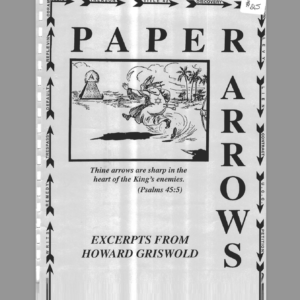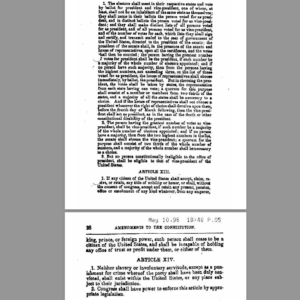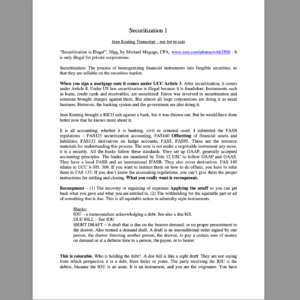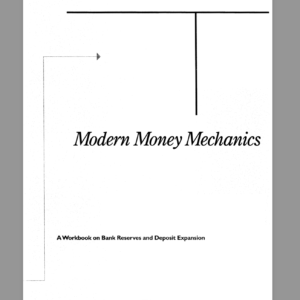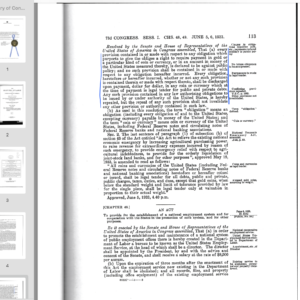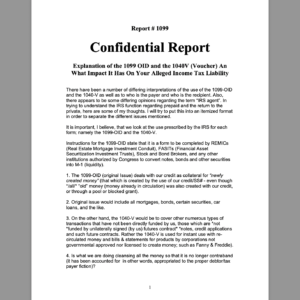Under UCC § 9-102, a “consumer” or “consumer debtor” is defined in a way that aligns with their role as a debtor, which in legal and commercial contexts makes them an ens legis—a created legal entity rather than a living man or woman.
1. UCC 9-102: Defining the Consumer as a Debtor
UCC § 9-102 provides definitions that distinguish the roles of parties in a secured transaction. A consumer debtor is simply a debtor (an entity obligated on a debt), where the obligation arises out of personal, family, or household purposes.
-
Debtor Definition (UCC 9-102(a)(28)):
A “debtor” means a person who has an interest, other than a security interest or other lien, in the collateral, whether or not the person is an obligor.
-
Consumer Transaction (UCC 9-102(a)(26)):
A “consumer transaction” means a transaction in which an individual incurs an obligation primarily for personal, family, or household purposes.
Thus, under the UCC, a consumer is always positioned as a debtor because their role is to incur obligations—this is the key function of a debt-transmitting utility vehicle.
2. Ens Legis: The Consumer as a Legal Entity, Not a Living Man/Woman
The term “ens legis” refers to a legal fiction or entity created by the state. A consumer debtor under the UCC is an artificial, statutory construct and not the living individual, reinforcing the separation between the legal person (ens legis) and the flesh-and-blood man/woman.
- Public Law & Policy: The U.S. government operates under a system where all commerce is debt-based post-HJR-192 (1933), meaning all consumers operate as debtors in a system where there is no real money.
- U.S. Citizens as Debt Instruments: Since the federal government removed gold from circulation, all transactions occur in a fiat system, where consumers function as vessels for debt transmission rather than owners of anything outright.
3. The Consumer Debtor as a Public Entity
- UCC Article 9 applies to transactions involving public commercial instruments (including consumer credit).
- The Social Security Number (SSN) is attached to every “consumer,” making them a registered entity within the federal debt system.
- A consumer cannot own property outright; instead, they are merely transactors who “use” property under a system where all assets are collateralized through security interests.
Conclusion
Under UCC 9-102, public policy, and historical legal frameworks, a consumer is a debtor, meaning they operate solely within the public commercial system as an ens legis. They transmit debt but do not own outright, and their legal existence is separate from the actual living being.




